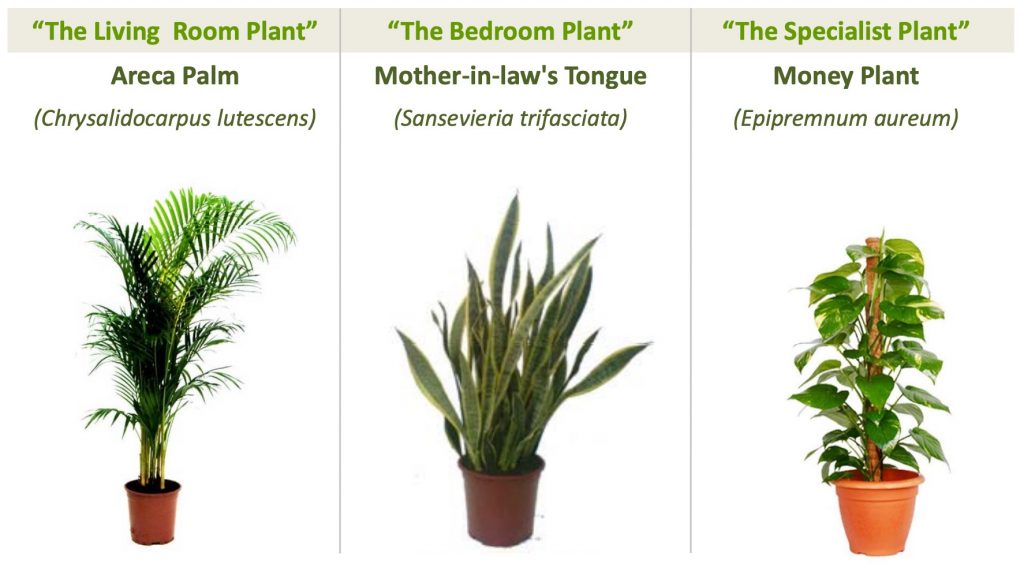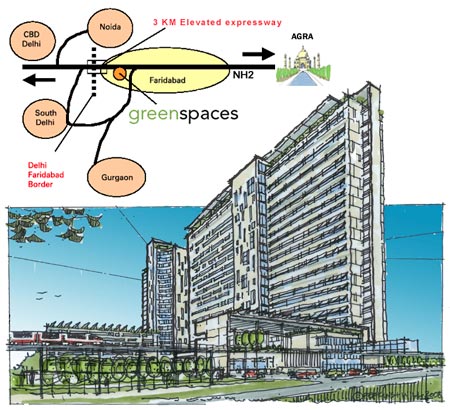How to Grow Your Own Fresh Air – TED 2009
This page is the extension of the talk we presented at TED:
Slide deck from the TED Talk:
Index: The Discovery | The Plants | The Proof | Buildings & Climate Change | The Future
- Works well in the day time
- Great for living areas
- One needs about 4 shoulder high plants/person
- Needs to be put outdoors once every 3-4 months
- The leaves of the plant need to be wiped everyday in Delhi and perhaps once a month in a cleaner city
- The soil used should be of vermi manure or use hydroponics
- Converts CO2 into O2 at night
- One requires about 6-8 such waist high plants per person in the bedroom
- Leaves need to be wiped in the same way as the Areca Palm
- The soil used should be of vermi manure or use hydroponics
- Excellent for removing Formaldehyde and other VOC’s
- Best grown using hydroponics
Buy these plants for your office or home from our greenhouse shop.
We have tried and tested these plants for 15 years at Paharpur Business Centre and Software Technology Incubator Park (PBC™ – STIP) in New Delhi, India. It is a 20 year old, 50,000 ft2 building, with over 1,200 plants for 300 building occupants.
PBC™ – STIP is rated the healthiest building in Delhi by the Government of India.* Their study found that there is a 42% probability of increasing blood oxygen by 1% if one is inside the building for 10 hours.
Also, compared to other buildings in Delhi, the incidence of eye irritation reduced by 52%, lower respiratory symptoms by 34%, headaches by 24%, upper respiratory symptoms by 20%, lung impairment by 10-12% and Asthma by 9%. As a result of fewer sick days — employee productivity also increased.
* Study published on September 8, 2008 by The Govt. of India, Central Pollution Control Board and Chittaranjan National Cancer Institute, Kolkata, India
We conducted another experiment and sealed all fresh air and exhaust from the building for 6 weeks and found that that the air quality inside the building was better than outdoors.
We saved over 15% in energy costs as we did not have to inject 15-20 cfm of fresh air in to the building as suggested by ASHRAE – an industry standard.
You can check on today’s indoor air quality at http://www.pbcnet.com
- World energy demand is expected to grow by 30% in the next decade.
- Buildings consume 40% of the world’s energy.*
- In another 15 years, more than 60% of the world’s population will be living in cities of over 1 million inhabitants.
- There is a growing trend of having air-conditioned living and working areas, resulting in the increased need for fresh air which needs to be heated or cooled.
- ASHRAE rules require 15-20 cfm of fresh air per person for a healthy non-smoking building.
*source: United Nations Environment Program, March 2007
We’re now replicating this concept in a much larger 1.75 million ft2 building. We intend to use over 60,000 indoor plants!
GreenSpaces has a very eminent Hon. Advisory Board of 13 members and has a large number of Fortune 500 firms as its Technology Partners including General Electric, Carrier, Otis, IBM, ITT, and others.
What is TED? TED, which stands for “Technology, Entertainment, Design,” is an annual conference attended by many of the world’s leading scientists, academics and business leaders. The agenda consists of a series of “talks,” during which big thinkers discuss big ideas.



